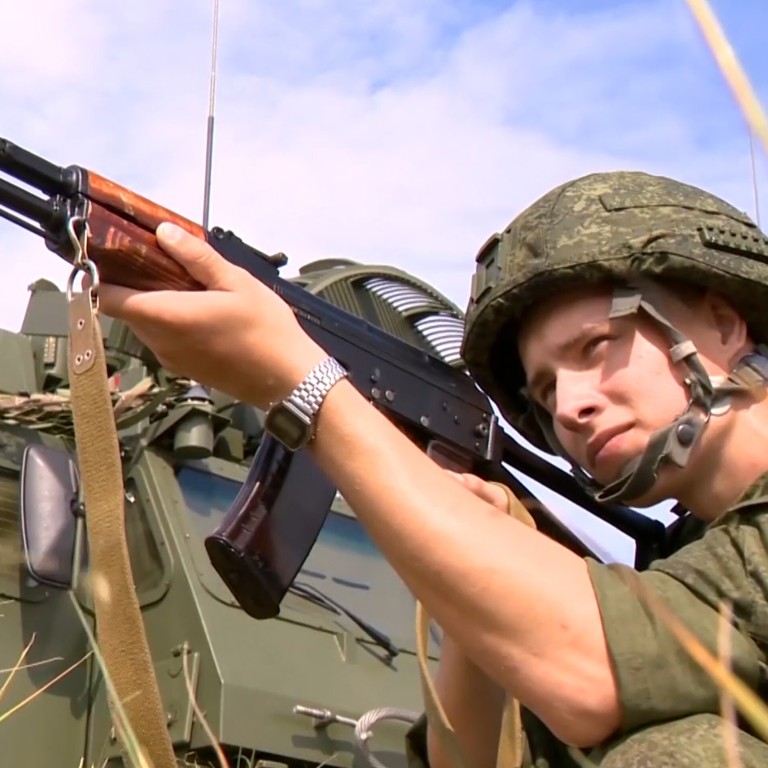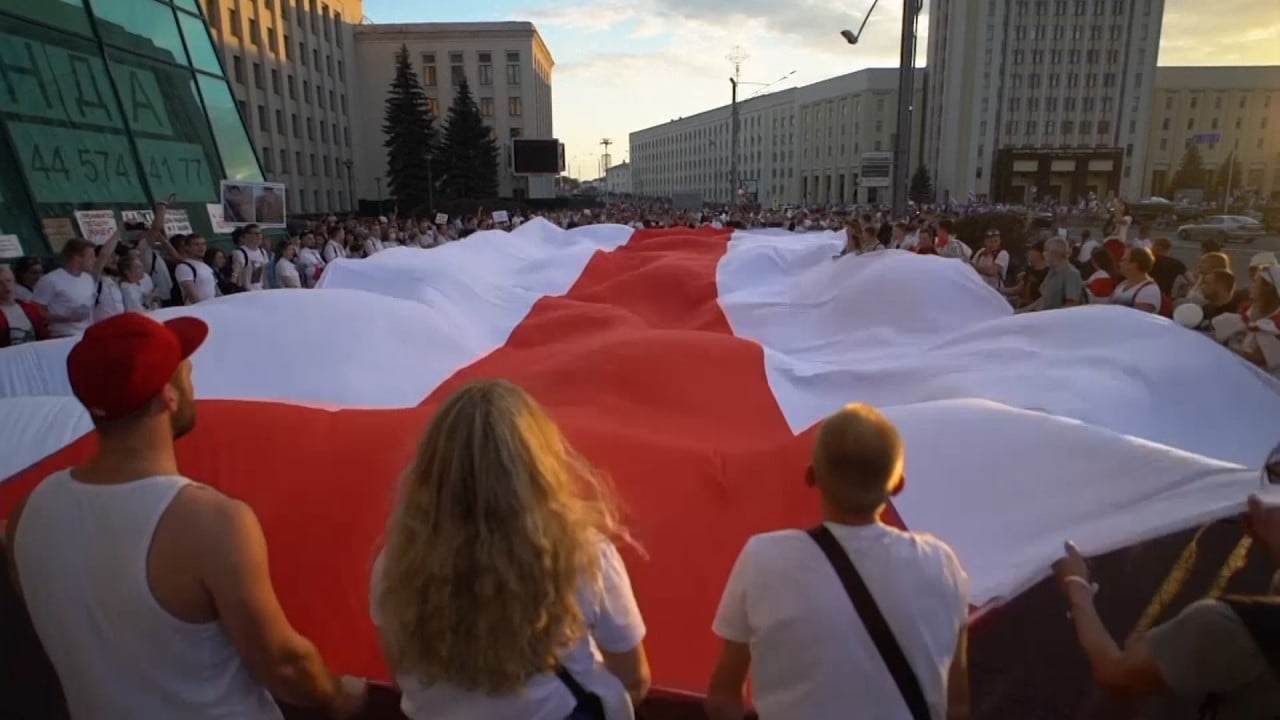
Belarus army ‘combat ready’ as opposition woos Russia
- Belarusian President Alexander Lukashenko has ordered the army on his country’s western border to be combat ready
- Mass protests and strikes continue in Belarus, after Lukashenko was accused of rigging election in his favour
Belarus President Alexander Lukashenko, facing the biggest domestic challenge to his 26-year rule, deployed the military to the country’s borders with the European Union as he complained of unspecified security threats.
“Today, we have problems not only inside but outside” the country, Lukashenko told his security council Tuesday, the state-owned Belta news service reported. “We reacted to this and deployed combat units of our army on the western borders of our frontier and have brought them to full combat readiness.”
Lukashenko dramatically raised the stakes ahead of a planned EU summit Wednesday on the disputed presidential election in Belarus, which has been roiled by the biggest protests in its history. His move came after Russian President Vladimir Putin discussed the Belarus crisis in separate calls with German Chancellor Angela Merkel and French President Emmanuel Macron.

03:13
Belarus protests against President Lukashenko continue with demands for new elections
Putin warned against “exerting pressure on the Belarusian leadership” in his talk with Macron, and told Merkel of the “unacceptability of any attempts at external interference”, according to Kremlin statements. Macron urged Russia to favour calm and dialogue regarding Belarus, according to the Elysee Palace, while Merkel said she called Putin to make “it clear that the right to freedom of speech, and to demonstrate, must be present”.
Could red-and-white Belarus ‘protest flag’ provoke a Russian intervention?
Lukashenko has appealed to Russia for support as he fights to maintain his power after claiming to have won a landslide victory with 80 per cent of the vote in the August 9 election. Opposition candidate Svetlana Tikhanovskaya said Monday in a video message from exile in Lithuania that she was ready to act as “national leader” in place of him until new elections can be held.
The opposition in Belarus was working to establish a coordinating council to lead the country out of crisis.

A council made up of civil society representatives is to be formed on Tuesday, to organise a peaceful transfer of power in the country, a spokesman said.
Lukashenko threatened the initiators of the coordination council with “measures” calling it an attempt to seize power, according to BelTA.
The Kremlin was betting before the election that Lukashenko would manage to extend his rule for a sixth term, while also becoming more dependent on Russia as his harsh tactics alienated the West and made him vulnerable to Moscow’s demands for tighter political and economic integration.
Nato denies Belarus claim of military build-up at border
As the opposition protests snowballed, Russia has kept a cautious watch in case Lukashenko is forced from office. That would leave the Kremlin scrambling to maintain its special relationship with a vital buffer against Nato.
The opposition sought to reassure Russia about future relations as nationwide strikes continued in Belarus in support of the demands for Lukashenko to step down. “We recognise and accept that” Russia is an important partner and Belarus should maintain “all existing agreements”, Maria Kalesnikava, a top Tikhanovskaya ally, wrote in a message published on Telegram by the editor-in chief of Russia’s Ekho Moskvy radio on Tuesday.
In Minsk, some members of the government have responded to the protests with conciliatory tones.
“We are open to dialogue,” Health Minister Vladimir Karanik wrote in an open letter to the independent portal tut.by. “I have always thought the best way to find a solution is to sit down and talk.”
On Tuesday, Belarus’ ambassador to Slovakia stepped down after having expressed solidarity with the protest movement, according to reports by Belarusian news portal Tut.by and Slovakian media
Additional reporting by DPA

